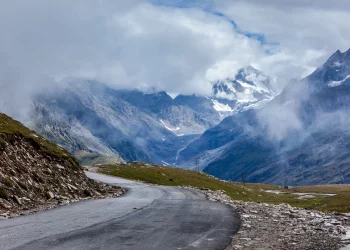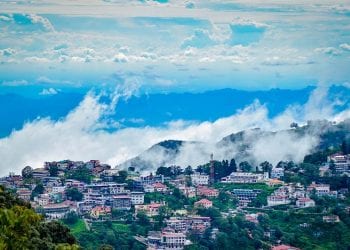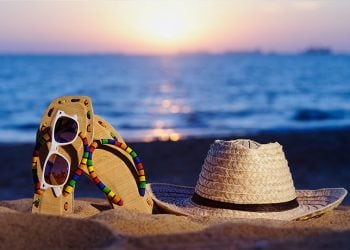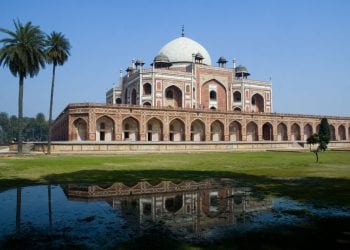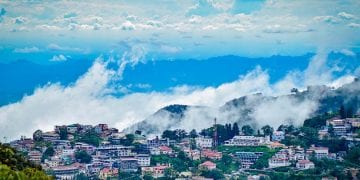Hooghly River: Tourist Places Near Haldia
In eastern India, between the Himalayas & the Bay of Bengal lies the splendid State of West Bengal. One of its main attractions is the Hooghly River also spelled as Hoogli or Hugli or Bhagirathi-Hooghly traditionally called ‘Ganga’. It is approx. 260 km long distributary of the Ganges river. It reaches the Bay of Bengal at Nurpur and then empties into the sea. The vast majority of the water that flows into this river is from the man-made Farakka Feeder Canal, rather than a natural source of the river. There are some of the best places to visit in Haldia,
History
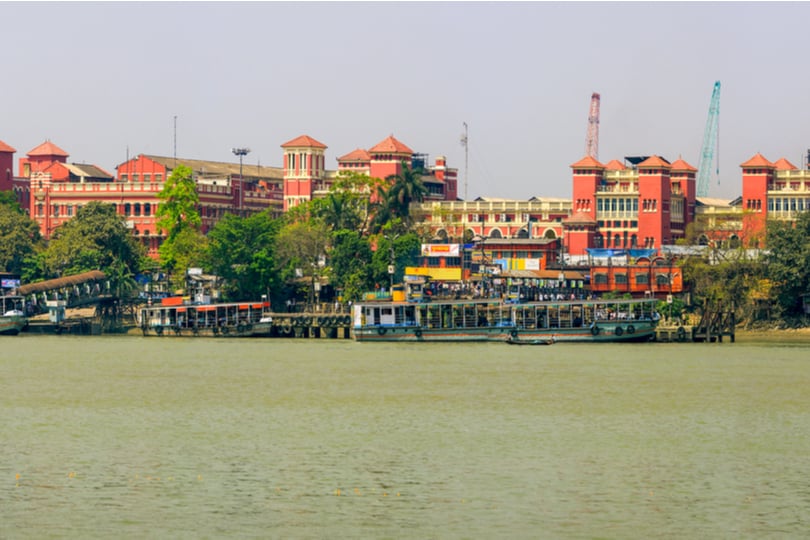
In its upper reaches, the river is generally known by the name Bhagirathi, until it reaches Hooghly. The word Bhagirathi means ‘caused by Bhagiratha’ a mythical Sagar Dynasty prince who was intrinsic in bringing the river Ganges from heaven on earth, to release his 60,000 grand uncles from the curse of saint Kapila. Like the rest of the Ganges, this river is also considered sacred by the Hindus and its water is considered pious. It was through this particular river that the East India Company sailed into Bengal, established their trade settlement Calcutta, the capital of British India. There are some of the best places to visit in Haldia that everybody should visit at least once.
Significance
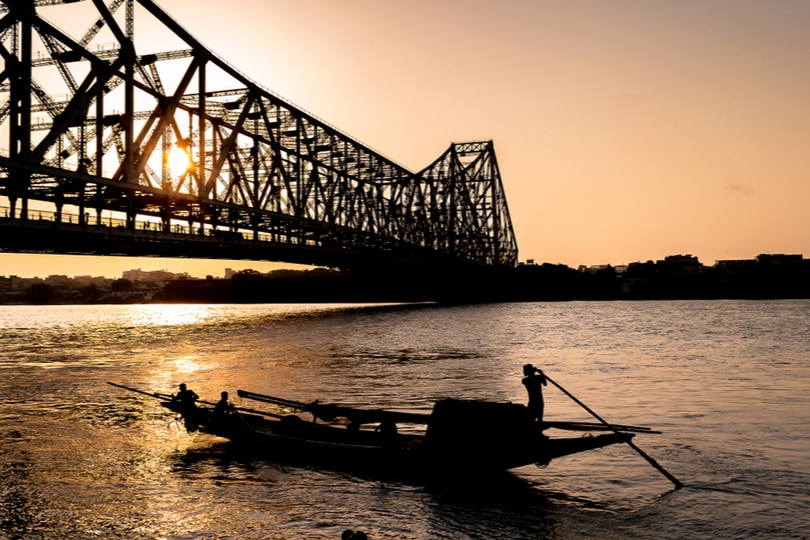
Hooghly river system is a fundamental lifeline for the people of West-Bengal. The river provides a supply of water for irrigation as well as human & industry consumption. It is navigable and a major transport system in the region with a large traffic flow. For a long time, the Calcutta port used to be the biggest in India. It is currently the 3rd largest port in India. The fish from this river is important to the economy. Hooghly river valley is one of the biggest industrial areas in India. Tourist places near Haldia are packed with a lot of surprises.
Haldia, a major river port and industrial belt, located 125km southwest of Kolkata, is located at the point where the Hooghly merges with the Bay of Bengal. Throughout human history, we have observed that some of the greatest civilizations of the world were those that were established on the banks of rivers. In India, these serene water bodies have cultural, mythological, even historical importance, with many of our rivers bearing the names of Gods and Goddesses. This river, located in the state of West Bengal is no exception. Check out the best tourist places near Haldia while travelling to this part of the country.
The structure of the Hooghly is complicated. In actuality, it is a distributary of the Ganga, with the water body’s natural source at the town of Giria, in West Bengal’s Murshidabad district. Its total length spans 260km, from its origin, all the way till its confluence with the Bay of Bengal. However, the portion of the river from the point where it splits off from the Ganga to the point where it meets the river Jalangi further downstream, is also referred to as the Bhagirathi. This is because it wasn’t until the 16th century that the Ganga shifted its bed eastward to the river Padma, with the Bhagirathi forming the Ganga’s original bed. The Bhagirathi derives its name from the mythical character of Bhagiratha, a legendary king belonging to the Ikshvaku dynasty, and is said to be the one responsible for bringing the Ganga to Earth from the heavens. It is one of the Ganga’s source streams, flowing directly from the Gangotri glacier, and joining the Alaknanda to form the Ganga as we know it. As a result, the entirety of the river may often be referred to as the Bhagirathi-Hooghly.
A bulk of the volume for this water body doesn’t come from its natural source anymore, but in fact from the Farakka Feeder Canal. This canal, connected to the Farakka Barrage, is meant to regulate the sedimentation of the Ganga, and reduce the need for mechanical dredging. It flows from the neighboring town of Farakka, past the town of Dhuliyan, until it meets the Bhagirathi at Sonapur, some 50km downstream. Additionally, this dam is also responsible for the proper distribution of water between India and Bangladesh, as per the Farakka water-sharing treaty which was signed between the two countries in 1996. As we go further downstream to Nabadwip, the Bhagirathi finally meets the river Jalangi and forms the Hooghly in its entirety.
While a tidal bore does make navigation tricky and is even capable of destroying small boats, the Hooghly remains navigable. It is an essential trade route, with a high volume of traffic. Through this river, various foreign traders, such as the French, Dutch, Portuguese, etc. formed settlements here in India. The most infamous of these settlers must be the East India Company’s employee and administrator, Job Charnock, who founded the city of Kolkata, then referred to as Calcutta, which went on to become the British Raj’s capital from 1773 to 1911. While Kolkata is still a major city and West Bengal’s state capital, a fair amount of the trading along this route is conducted by the modern container port of Haldia, with plans for a deep-sea trading post to share the load even further. Check out the Check out the best tourist places near Haldia to have the best time in the east of India this summer.
Several bridges go across the Hooghly river. The Rabindra Setu, also known as the Howrah Bridge is a cantilever bridge, for vehicular traffic, with a length of 705m – the sixth-longest bridge of its kind in the world. It was named after the great Bengali poet and Nobel laureate Rabindranath Tagore. The Vidyasagar Setu, locally known as the Second Hooghly Bridge is another prominent bridge that goes over the Hooghly. It is 823m in length, and also carries vehicular traffic. The Nivedita Setu was built to ease the pressure off the aging Vivekananda Setu, but the latter provides both road and rail links to and from Kolkata, while the former is only a road bridge. The Sampreeti Setu is strictly for rail transport and connects the Garifa railway station and Hooghly Ghat railway station along the Naihati-Bandel branch. It replaced the retired Jubilee Bridge, which officially stopped operating on April 17, 2016. Tourist places near Haldia are known for their rich heritage and history.
The river is a perennial natural water resource for the state of West Bengal. Its water is used for irrigation, as well as consumption by both the public and the surrounding industries. According to a 2015 survey conducted by Ashim Kumar Nath and Anindita Patra, from the Post Graduate Department of Zoology at Serampore College in Hooghly itself, one may find that the “Hooghly river sector 87 fish species belonging to 12 orders, 39 families and 69 genera”. Their survey further states that out of these 87 species, “14 species are of common occurrence and can be considered as commercial fish species”. Among these commonly found species is the “Tenualosa ilisha”, the Indian shad, also known as “Hilsa”. It is an important commodity in the Indo-Pacific region’s fishery industry. The Bhagirathi-Hooghly River makes for prime fishing grounds for this species. Reportedly, the annual catch of this fish from here has ranged from 12,733 to 20,000 between the years 2000-2001 and 2010-2012. Check out the best tourist places near Haldia for having a great time with friends and family.
Top 5 Places to Visit at the Hooghly River
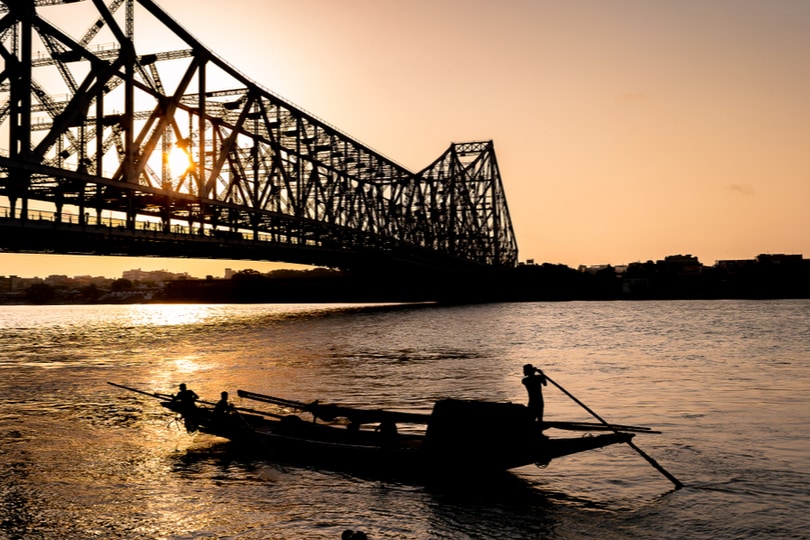
When we think of Kolkata the most popular thing that comes to our mind is the grand ‘Howrah Bridge’ constructed in 1942 on the Hooghly River. Kolkata & its suburbs have a close connection with this river for ages. This river has seen everything from the transition of ‘Calcutta’ to ‘Kolkata’. As a local or as a tourist, these are the top 5 things one can do at the river:
1. Nauka (boat) Ride
A Nauka (boat) ride is a must! Sailing below the Howrah Bridge is a beautiful experience in itself. A sailor with an oar, the hood of the boat and a hanging lantern are sure to give you a “Chingari koi bhadke” song feel.
2. Visit Bandel Church
It is one of the most iconic and recognized buildings and a must-visit.
3. Hangseshwari Temple
It is the temple of goddess Hangeshwari and has a distinctive pattern, different from usual architecture in this area. The inner structure represents human anatomy. It was started by Raja Nrisingha Deb Roy. Its artistic structure makes it famous and a must visit.
4. Tarakeshwar Temple
It is an ancient temple dedicated to Lord Shiva. It is one of those places along the Hooghly which always remains densely packed with visitors throughout the year. It has got a deep mythological value attached to it & it is believed that a visit to this temple can fulfill all your wishes. One of the most prominent temples in town, it is also a prominent tourist place in Haldia.
5. Hooghly Imambara
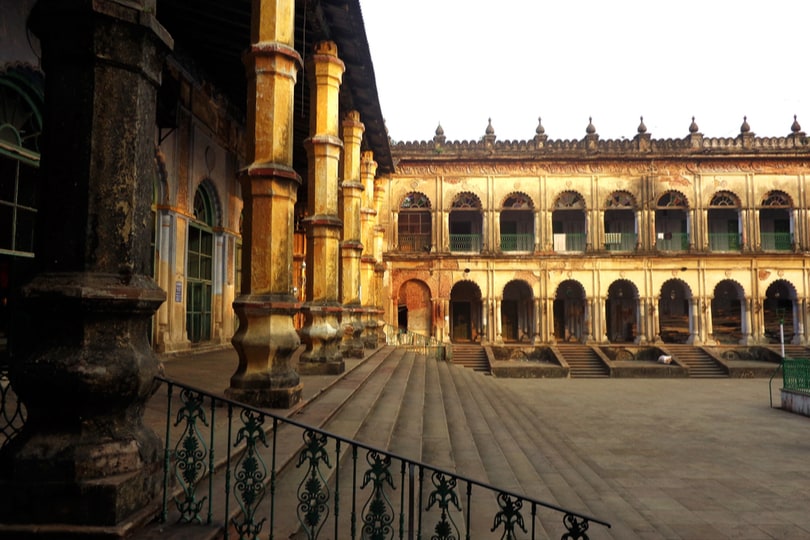
It is a huge two-story building built in 1861. It is a major religious center for followers of Islam. Excellently carved walls, sculptured texts of the holy book of Quran, massive pillars on the entrance & an ancient clock tower are some of the most mesmerizing features of this place. The northern block also houses a Mosque and southern block has been dedicated to the grave of the founder Hazi Mohsin.
Due to the area’s cultural history, the diversity of the architecture and the various shrines are a sight to behold. Festival celebrations in this region are bombastic displays of culture and grandeur. Be it the celebrations of the Jagadhatri Puja, a massive Hindu celebration that takes place in November every year in Chandannagar and Krishnanagar, or the serene vistas of Triveni, where the holy rivers of Ganga (Hooghly today), Saraswati and Kunti once merged, the places one could visit are as abundant as they are beautiful. It is one of the best tourist places in Haldia.
How to Reach Hooghly?
By Air: Netaji Subhash Chandra Bose International Airport, located at Dum Dum in Kolkata, connects Hooghly to the other parts of the country. On arrival, a private taxi can be hired to reach the beautiful city of Hooghly.
By Rail: Hooghly is very well connected by rail as well. Chinsurah Railway Station, located in Chinsurah, the headquarters of Hooghly, is the nearest railway station. Another nearest station is Bandel.
By Road: Just 40 km to the north of Kolkata, Hooghly is easily accessible by road. There are regular bus services that connect it to the state capital. There are government as well as private run buses to reach the destination.
Best Time to Visit
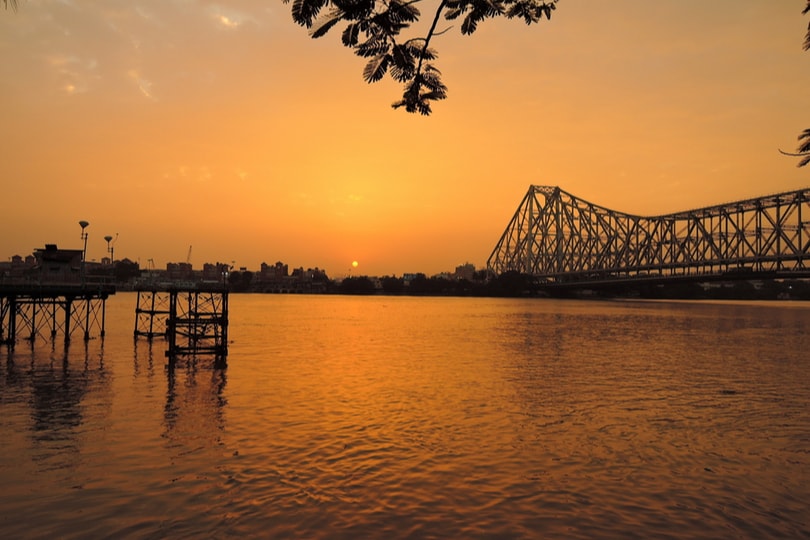
In terms of the weather in the region, the October-November is especially recommended for tourists to visit. Kolkata, in particular, is especially lovely at that time of year. All in all, the banks of the Hooghly have a myriad places one may visit, all the way from its origin near Giria till its convergence with the Bay of Bengal past Haldia. Also, the Tourist places near Haldia in Kolkata are known for their cultural and historical significance.
Even with all the places to visit, one would only be scratching the surface of the sheer volume of experiences present here. Tarakeshwar, the renowned pilgrimage site is also worth adding to one’s itinerary. The Taraknath and Tarakeshwar temples, both shrines dedicated to Lord Shiva, have caught the fancy of a vast number of tourists, and have been popular destinations for years. Another religious site that merits a visit is The Basilica of Holy Rosary commonly referred to as the Bandel Church. The word Bandel’s etymology tells us that it was derived from the Bengali word “Bandar”, which means “port”. Constructed in 1660 by Portuguese settler, Gomez de Soto, the monument consists of the Church as well as a monastery. It is well-connected via both road and rail, with the frequency of trains at Bandel (Jn) station being decent. However, if one is looking for some novelty, a Ferry service from Naihati Ferry Ghat to Chinsurah Ferry Ghat is also available.
Hooghly has tons in store, whether you’re looking for peace, spirituality or adventure. We cannot define its magnificence in words – that’s something you’ll have to experience!
Recent Posts
Top Picks
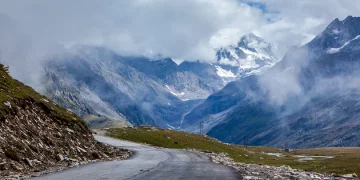
- OYO
 15 April, 2024
15 April, 2024 - Cultural Tour

- OYO
 15 April, 2024
15 April, 2024 - Cultural Tour

- OYO
 15 April, 2024
15 April, 2024 - Cultural Tour

- OYO
 15 April, 2024
15 April, 2024 - Cultural Tour

- OYO
 15 April, 2024
15 April, 2024 - Cultural Tour

Please rotate your device
Please go back to portrait mode for the best experience



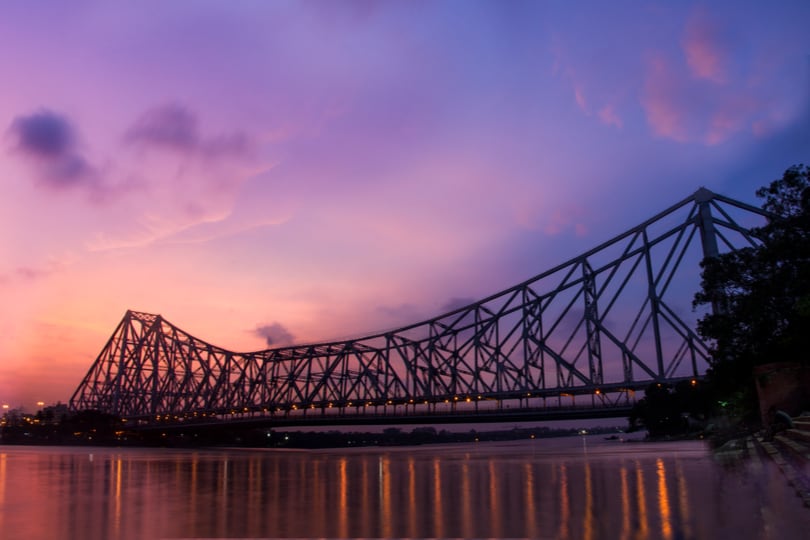
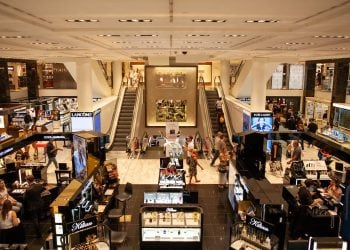
 April 15, 2024
April 15, 2024 